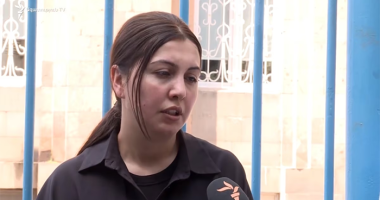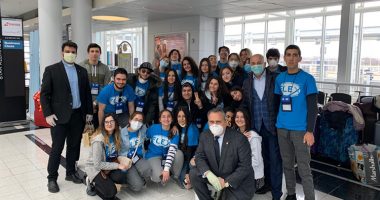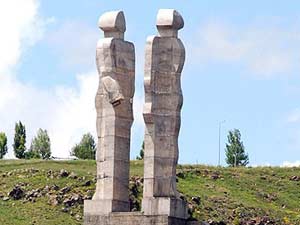YEREVAN (RFE/RL) — A “free expression of the will” of Nagorno-Karabakh’s population must be critical in determining the future internationally recognized status of the disputed territory, OSCE Minsk Group Co-Chair James Warlick said on Monday.
Warlick thus reaffirmed one of the key elements of the Basic Principles of resolving Karabakh conflict that have been put forward and repeatedly modified by the United States, Russia and France over the past decade.
“There cannot be a comprehensive settlement without it including a status for Nagorno-Karabakh,” Warlick said just hours before he and fellow diplomats from Russia and France co-chairing the OSCE Minsk Group met with Armenian leaders in Yerevan.
“A part of a comprehensive settlement could include status and there will need to be a free expression of the will of the population of Nagorno-Karabakh as part of that comprehensive settlement,” he told reporters.
The Basic Principles envisage a phased solution to the Armenian-Azerbaijani dispute which would end in a referendum in Karabakh. Its mostly ethnic Armenian residents would presumably be able to vote for secession from Azerbaijani or return under Baku’s rule.
While claiming to largely accept this peace formula, Armenia and Azerbaijan have yet to agree on dates and other practical modalities of the would-be referendum. They have also disagreed on other significant elements of the proposed peace deal, notably a timetable for Armenian withdrawal from virtually all seven districts in Azerbaijan proper surrounding Karabakh.
“Nothing is agreed until everything is agreed, and that’s what we mean by a comprehensive settlement,” stressed Warlick. “One element of that settlement will need to be the return of the territories surrounding Nagorno-Karabakh.”
“It’s clear that Armenia does not plan to return territory without adequate security guarantees,” he said. Those guarantees include the deployment of multinational peacekeeping troops in the conflict zone, added the U.S. mediator.
Warlick also noted that the mediating troika reckons with the position of “the de facto authorities in Stepanakert.” “Their voice will need to be heard as part of any comprehensive settlement,” he said.
Warlick and the two other Minsk Group co-chairs, Russia’s Igor Popov and France’s Pierre Andrieu, arrived in Yerevan at the start of their latest round of regional shuttle diplomacy aimed at arranging a fresh meeting of the Armenian and Azerbaijani presidents later this year. The mediators hope that such a summit will kick-start the stalled peace process.










